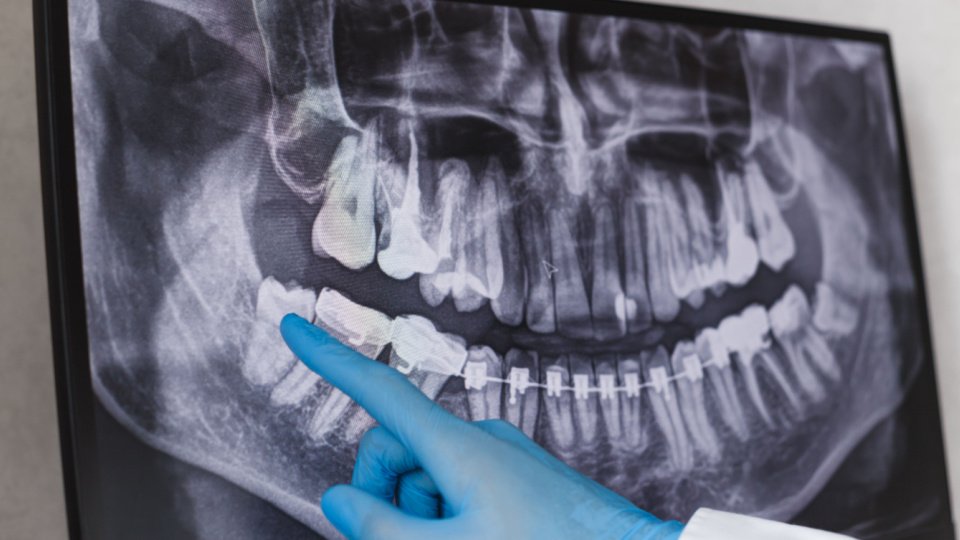Wisdom Teeth
Dental Treatments
Keep your smile natural with wisdom teeth treatment!
What Are Wisdom Teeth?
Our bodies change over time, including the development of wisdom teeth (also called third molars). These teeth typically appear between 17-25, usually at the back corners of your mouth. While some individuals never develop them or may develop multiple sets, others experience issues when their wisdom teeth remain impacted beneath the gum line and cause pain, swelling, or infection that affects not only them but their adjacent ones as well.
Why Do We Have Wisdom Teeth?
These teeth can be seen as remnants from our evolutionary past when our ancestors had larger jaws and consumed foods requiring greater chewing power, necessitating more chewing power from each bite. Nowadays with modern diets and smaller jaws there often isn’t enough room in the mouth for wisdom teeth, which can cause various dental issues in modern environments; dentists therefore recommend having problematic wisdom teeth extracted before misalignments occur elsewhere in your jawline or they become problematic over time.
Problems Caused by Wisdom Teeth
They can present themselves in different ways. Some may remain hidden beneath gum tissue or become trapped and impacted in your jawbone, potentially leading to infection or cyst formation that damages other roots and bone support structures. Other times partially emerged wisdom teeth create passageways through which bacteria gathers – creating gum disease and oral infections as a result.
Wisdom Teeth Extraction
Extractions may not always be necessary; each case must be evaluated individually by a professional dentist or oral surgeon to determine if extraction is required based on your unique circumstances. Regular dental check-ups and X-rays can monitor growth and alignment of wisdom teeth; if they’re causing no issues, your dentist may advise leaving them in place while keeping an eye on them closely.
Extraction Procedure
Wisdom teeth removal can be an easy and straightforward procedure, with most individuals experiencing no lasting complications from extraction. A local anesthetic may be administered, with sedation options also available if anxiety becomes an issue during this process. From there, either an oral surgeon or dentist will make an incision in the gum tissue to expose both tooth and bone before extracting both elements in succession; any debris remaining after removal must also be cleared away before stitches may be needed to close wounds. Recovery times usually occur within several days, while complete healing can take up to four weeks post-extraction site healing timeframe.
Post-Extraction Care
Proper post-extraction care is key for proper healing and avoiding complications following extraction surgery, and includes following your dentist’s advice on managing pain and swelling using ice packs and prescribed pain relievers. Furthermore, keeping the extraction site clean by avoiding activities which might dislodge blood clots from forming within its socket; such activities include no smoking, spitting, or using straws within 72 hours post-op.
Conclusion
Wisdom teeth can be an awkward part of dental development, but regular monitoring and timely intervention can effectively manage potential issues. If you experience pain, swelling, or other symptoms related to these teeth, consult with your dentist about the best course of action – from tracking their growth or extracting them altogether, professional dental care can ensure that also these teeth do not cause additional discomfort or complications in your dental development process.
Maintaining good oral hygiene and attending regular dental checkups are crucial in order to avoid teeth issues and maintain overall dental health. If you’re interested in wisdom tooth extraction or just curious, reach out to your local dentist for personalized advice and treatment options.
All you need to know about dental treatment, including price, aftercare and healing process, or contact us!

FAQ
When wisdom teeth grow?
Wisdom teeth, also known as third molars, typically start to grow in during the late teenage years or early twenties. The exact timing can vary from person to person. Some individuals may have their wisdom tooth fully erupted and in proper alignment, while others may experience problems such as impacted wisdom tooth, which are unable to fully emerge due to lack of space in the jaw. If you have concerns, it is recommended to consult with a dentist or oral surgeon for an evaluation.
How wisdom teeth is removed?
Wisdom teeth removal involves an examination, X-rays, anesthesia, incision, extraction, cleaning, and possible stitching. Post-operative care includes managing swelling and discomfort. The procedure’s complexity depends on the teeth’s condition.
Can wisdom teeth cause ear pain?
Yes, impacted or inflamed wisdom teeth can cause ear pain due to the proximity of the nerves. It’s advisable to seek professional evaluation from a dentist or oral surgeon to determine the cause and appropriate treatment.
Can wisdom teeth cause headaches?
Yes, wisdom teeth can sometimes cause headaches. When they are impacted or erupting in an improper position, they can exert pressure on surrounding structures, including the jaw, sinuses, and nerves. This pressure and inflammation can lead to headache symptoms, including tension headaches or referred pain to other areas of the head. If you’re experiencing persistent headaches and suspect they may be related to your teeth, it’s recommended to consult with a dental professional for an examination and appropriate treatment recommendations.
Contact us now in case you have any questions!
Types of Treatments
Find the best Treatments and most Popular Dentists & Clinics
Request Form
Get your free consultation
- Need guidance and reassurance?
- Talk to a real person from MedClinics!
- Let's find the perfect doctor together.
